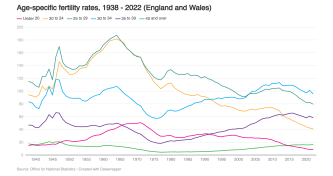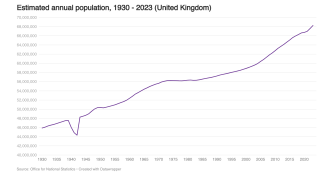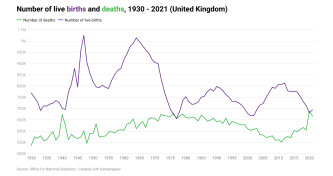Source: Office for National Statistics – Births in England and Wales: summary tables
Notes:
- The Total Fertility Rate (TFR) is the average number of live children that a group of women would bear if they experienced the age-specific fertility rates of the calendar year in question throughout their childbearing lifespan. For information on how the fertility rates have been calculated see the ONS user guide to birth statistics.
| Key dates | |
|---|---|
| 1939 - 1945 | Second World War |
| 1961 | Introduction of the contraceptive pill |
| 1967 | Family Planning Act Made contraception readily available through the NHS |
| 1967 | Abortion Act Legalised abortion under 28 weeks free on the NHS. |
About CLOSER
This page is part of Our Changing Society, a free resource developed by CLOSER to provide detailed information about the historical and political backdrop to study participants’ lives.
CLOSER’s mission is to increase the visibility, use and impact of longitudinal population studies, data and research to ensure that longitudinal evidence is used to address the health, social, economic and environmental challenges facing the UK, now and in the future.
Want to know more?
- Longitudinal News – Sign up to our monthly newsletter to hear about the latest news, blogs, research and events from the longitudinal community.
- Learning Hub – Find information and resources to help you better understand longitudinal population studies and how to use the data.
- CLOSER Discovery – Search and explore data in the UK’s most detailed research tool for longitudinal population studies.



